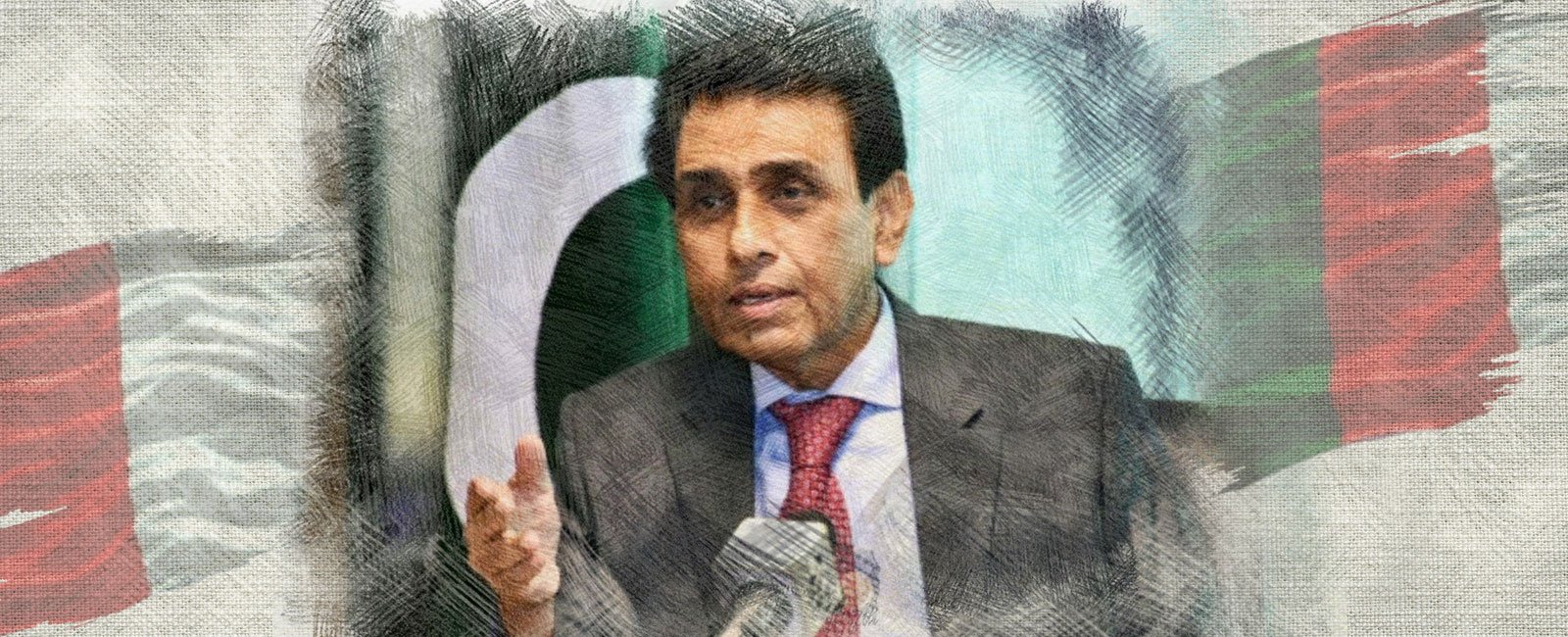Khalid Maqbool Siddiqui: From student politics to National Assembly
Khalid Maqbool Siddiqui, presently the convener of the almost fractured MQM-P, began his political career in the mid-80s as an activist of the then newly formed APMSO from Hyderabad

Muttahida Qaumi Movement (MQM) and Jamaat-e-Islami (JI) are by far the only two political parties where a worker can rise to the top position to lead the party. But both parties have one thing in common, which is: that they have their origins in the middle class and most of their leaders emerged from student unions and local bodies — two major political nurseries.
However, their respective political narratives are poles apart. One is confined to ethnic politics while the other is conservative. Thus, their electoral support has been long confined and unless they broaden their political spectrum it's unlikely it will go beyond certain limits.
Khalid Maqbool Siddiqui, presently a convener of the almost fractured MQM-Pakistan, began his political career in the mid-80s as an activist of the then newly formed All Pakistan Muhajir Student Organisation (APMSO) from Hyderabad, Sindh.
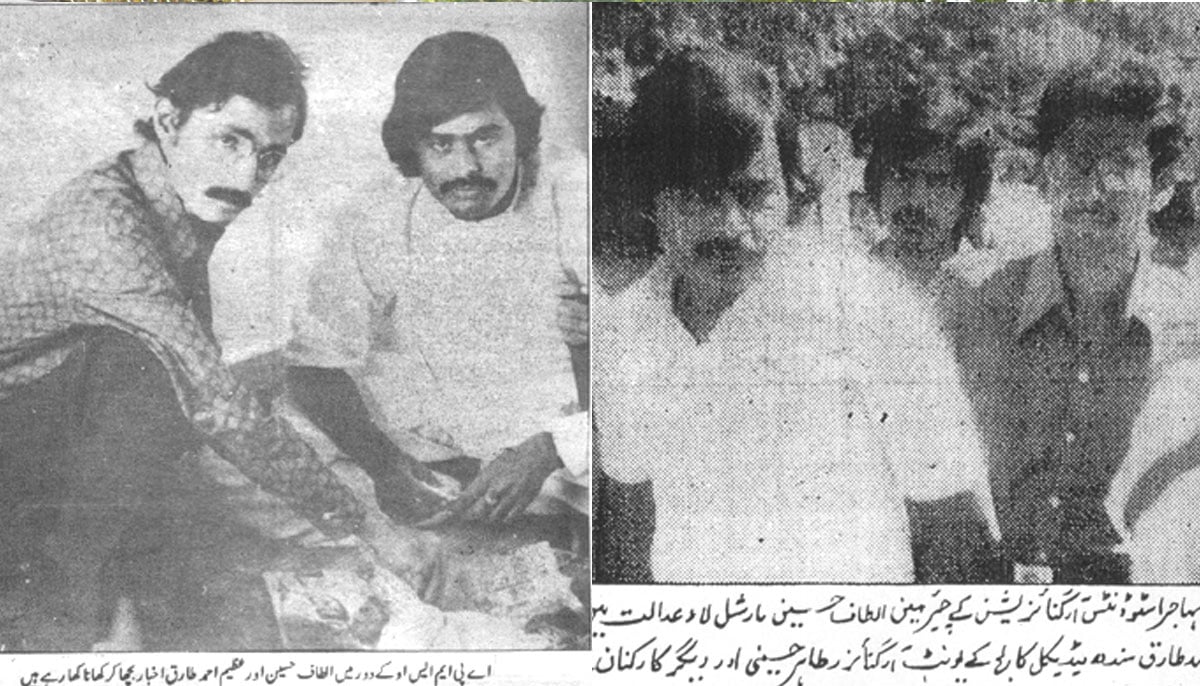
However, he was not from the first batch of APMSO. Then, the student group was headed by the likes of Altaf Hussain, Azeem Ahmad Tariq, Dr Imran Farooq, Ms Zareen Majeed, and Ahmad Saleem Siddiqi — all of them came from lower or middle-class backgrounds. The year was 1978.
Khalid joined APMSO in Hyderabad at a time when political and ethnic polarisation was very sharp and turned into a Sindhi-Mohajir conflict which was particularly felt in Hyderabad.
In 1984 Khalid became an active member of APMSO and was later appointed as the chairman of the group which gave birth to the Muhajir Qaumi Movement.
Most of the early leaders of the APMSO or the MQM came either from medical or engineering colleges. Their early slogans mostly revolved around their reservations over the "injustice" or hurdles they faced in getting enrolled into universities and colleges and unemployment owing to job "quota". This very slogan attracted the Urdu-speaking young aspirants and APMSO within no time generated support to the extent that it pushed the panic button of its rival Islami Jamiat-e-Tulba (IJT), which had started losing popularity. Even many of the APMSO and the MQM leaders were previously IJT members.
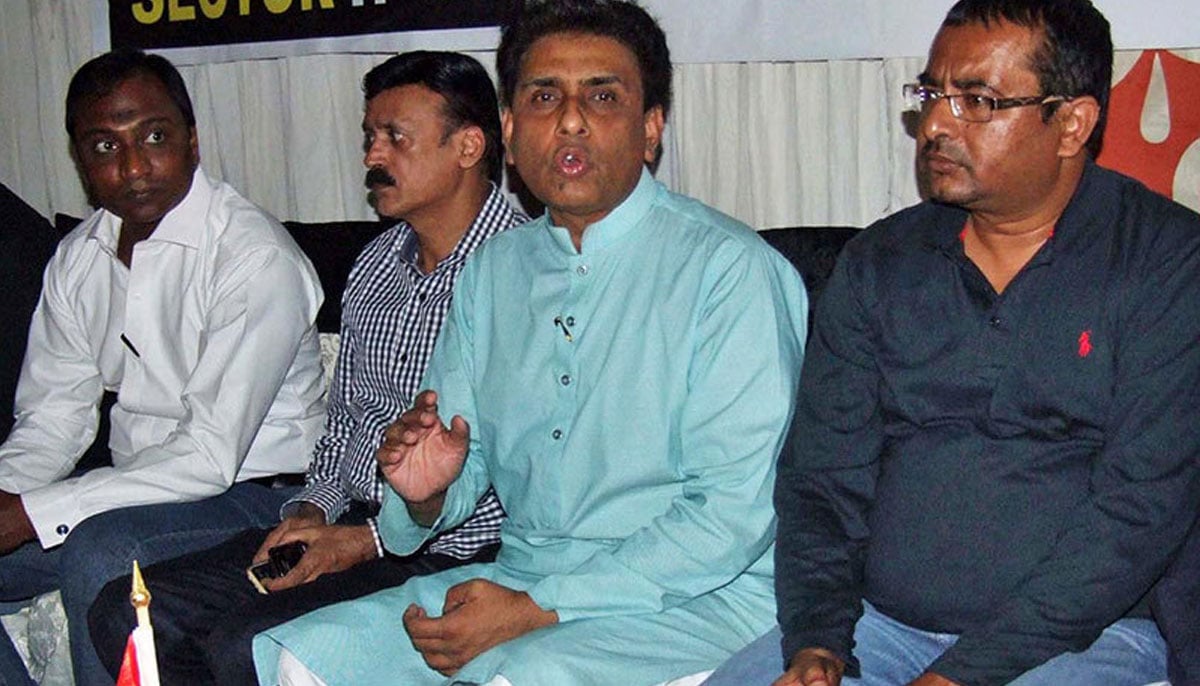
Hyderabad, once the provincial capital of Sindh, in the 70s and 80s was ethnically very polarised, particularly after the 'language riots' in the first Pakistan People's Party (PPP) government. In those years religious parties like JI and Jamiat Ulema-e-Pakistan (JUP) exploited ethnic issues like the language bill, enrollment into educational institutions, and job quota, which resulted in ethnic violence.
The city which once was the city of peace, love, culture, and music and known for academic excellence turned into a violent one and witnessed one of the worst 'massacres' in 1988, two weeks before the general elections. Nearly 200 people were killed, mostly Urdu-speaking and as a reaction, many Sindhi-speaking people were killed in Karachi's outskirts. All this led to 'violent ethnic polarisation’, which was reflected in the elections with rural Sindh going to PPP and urban to MQM.
Khalid Maqbool then moved to Karachi and enrolled in Sindh Medical College. I still remember interviewing him a few times as APMSO chairman, covering student politics and education were my 'beats' in daily The Star, where I also looked after a page called, "Campus Chalking'. So, I used it to cover student activities.
During those years Khalid was very vocal and completely loyal to "Altaf". It was mandatory for all the APMSO or the MQM workers to 'take an oath' that throughout their association with the party, they would remain "loyal to Altaf". Khalid also used to attend 'Fikri Nashist' (study circles) which normally was addressed either by Altaf or Azeem Ahmad Tariq.
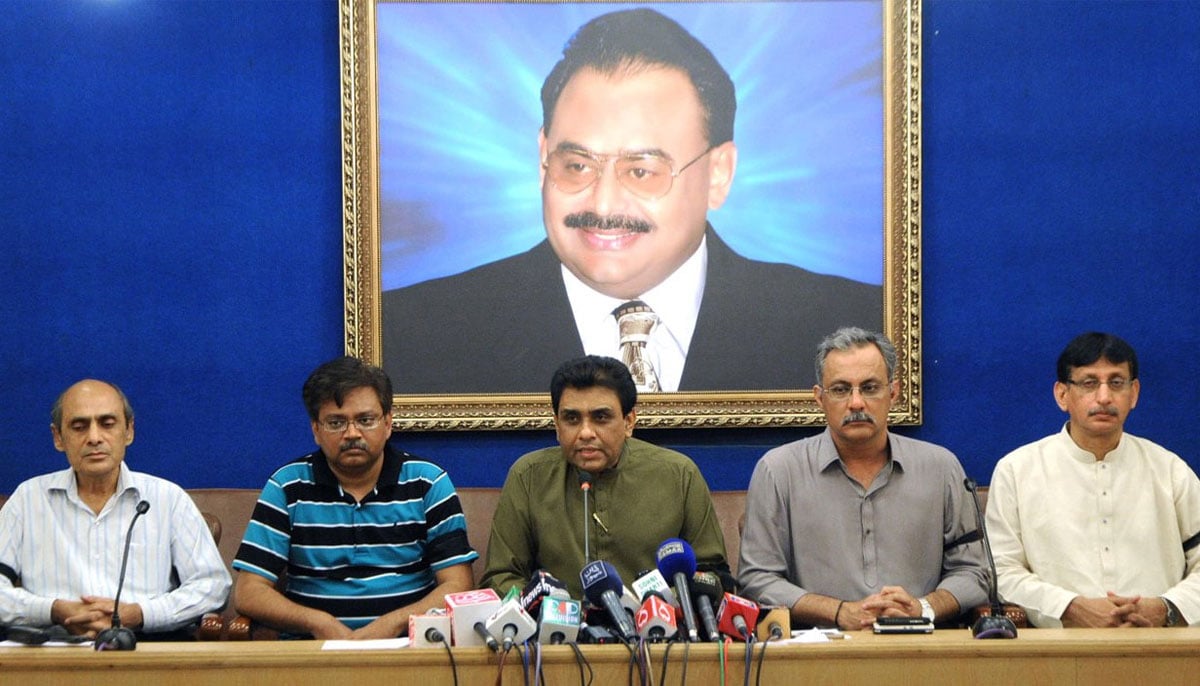
Hyderabad and Mirpurkhas had produced many diehard MQM leaders and at that time Altaf's loyalists like the late Aftab Sheikh, Anis Qaimkhani, Shabbir Qaimkhani, Anis Advocate, Rasheed Bhaia and Khalid Maqbool.,
After completing his MBBS, Khalid got engaged more in MQM activities and also became deputy zonal in-charge. The 1986-1987 period was the turning point in MQM's politics as for the first time, two years after its formation as a political party it held its first show of strength with a massive public meeting at Nishtar Park, which was the main political venue for public meetings in those years.
The show was unprecedented and thousands of MQM supporters attended the meeting wearing the traditional pre-partition dress 'Kurta-Pajama.' The 'writing was on the wall' for the major political parties in Karachi particularly the religious parties like JI and JUP. Altaf at that time called for unity among Sindhi and Urdu-speaking communities and his main focus of criticism was Punjab's domination. It was welcomed by veteran Sindhi nationalist, GM Syed.
Later, in what many believed was a well-calculated conspiracy to divide a few incidents like firing on the MQM procession at Sohrab Goth, when the MQM workers were going for a public meeting in Hyderabad and Hyder Bux Jatoi Chowk, created tension between the two communities.
MQM swept 1987 local bodies polls in urban Sindh and got its mayor elected in Karachi and Hyderabad followed by an unprecedented victory a year later in the general elections in 1988.
Khalid made his electoral debut in the same election and got elected for the first time as a member National Assembly (MNA). The MQM became the sole representative of urban Sindh after 1988 as they swept NA and provincial elections in 1988 and never looked back.
Khalid also became a federal minister in a coalition government and it was like a dream come true for someone who could never have gone that far because of his humble middle-class origins. Later, Khalid got re-elected in many elections.
In 1990-91, the MQM experienced its first split when two of its most loyal members, Afaq Ahmad and Aamir Khan, zonal in-charge of Karachi, quit the MQM. Since they controlled the entire Karachi's sectors and units, it created quite a stir within MQM resulting in the sacking of hundreds of its loyalists and for the first time the party's muscle power and organisational strength suffered a major dent. Power politics have its positives and negatives and for the first time stories regarding corruption within the party and in the ministries which the MQM was holding started surfacing. Besides, the news regarding batha collection, extortion violence, and control of the media.
All this resulted in the June 1992 military operation. However, months before the operation former chief minister, Jam Sadiq Ali, asked Altaf Hussain to leave Pakistan to save himself and he left for London in January 1992 and to this day never returned.
Many MQM leaders including Azeem Tariq, Dr Imran Farooq, Khalid Maqbool Siddiqi and others went underground. It was a turning point in MQM politics which resulted in its second rift. When Azeem Tariq, as party chairman, decided to surface, Altaf Hussain was against it but Tariq had other ideas and Khalid sided with Azeem Tariq along with Kishwar Zehra and a few others.
Many MQM leaders and activists including those in their alleged militant wing went abroad. Khalid too, after Azeem Tariq's assassination, went abroad but later came back to Altaf Hussain's fold but didn't want to stay back in London. He also went to the US and had a tough life there. He was once arrested, too. He also once visited India as part of MQM's official delegation.
Those who have worked within and known him very closely never doubted his honesty and integrity. as well as commitment. "I have known him since the 80s and have also worked with him and also found him very committed to what he believed in," says Kishwar Zehra, one of the few founding members of MQM still alive.
Khalid's health started deteriorating and he was later diagnosed with cancer but he fought well after getting proper medical treatment here and abroad. Despite being a cancer survivor he did not stop his political activities but in the post-2013 scenario, the MQM looked like a completely "Divided House". Some of the senior party leaders like Anis Qaimkhani, Anis Advocate, Raza Haroon, and Mustafa Kamal left the party and in early 2016 made their party, Pak Sarzameen Party (PSP).
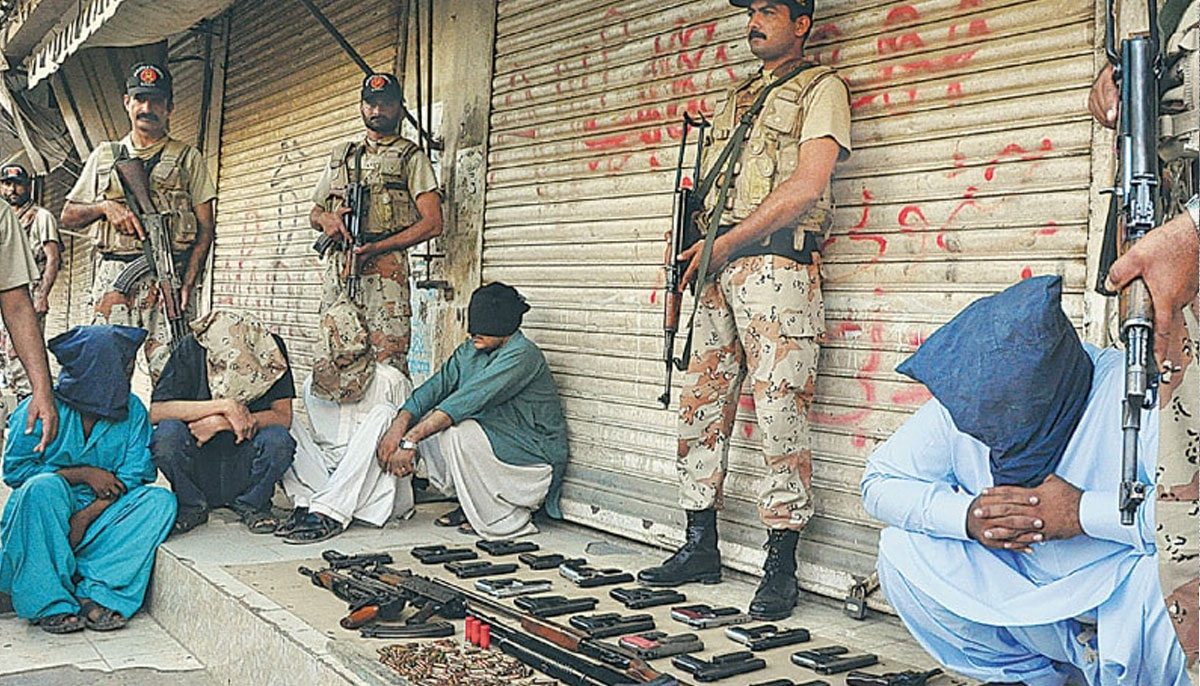
Things went from bad to worse after August 22nd, 2016 and party leaders in Pakistan got a clear message from the powers that be. The message was a "no to Altaf". This led to a new crisis within the MQM and gave birth to the MQM, which finally decided to distance itself from MQM-London and even condemned Altaf Hussain and the people around him.
It was the beginning of a new 'power struggle' within the MQM after MQM-Pakistan distanced itself and sacked Altaf Hussain as "Quaid-e-Tehreek" from its party constitution. While Mustafa Kamal and Anis Qaimkhani had launched PSP, in the post-August 2016 scenario, the biggest question was who would lead MQM-Pakistan and a tussle started between Dr Farooq Sattar and Khalid Maqbool and the MQM got divided between MQM-Bahadurabad and MQM-PIB.
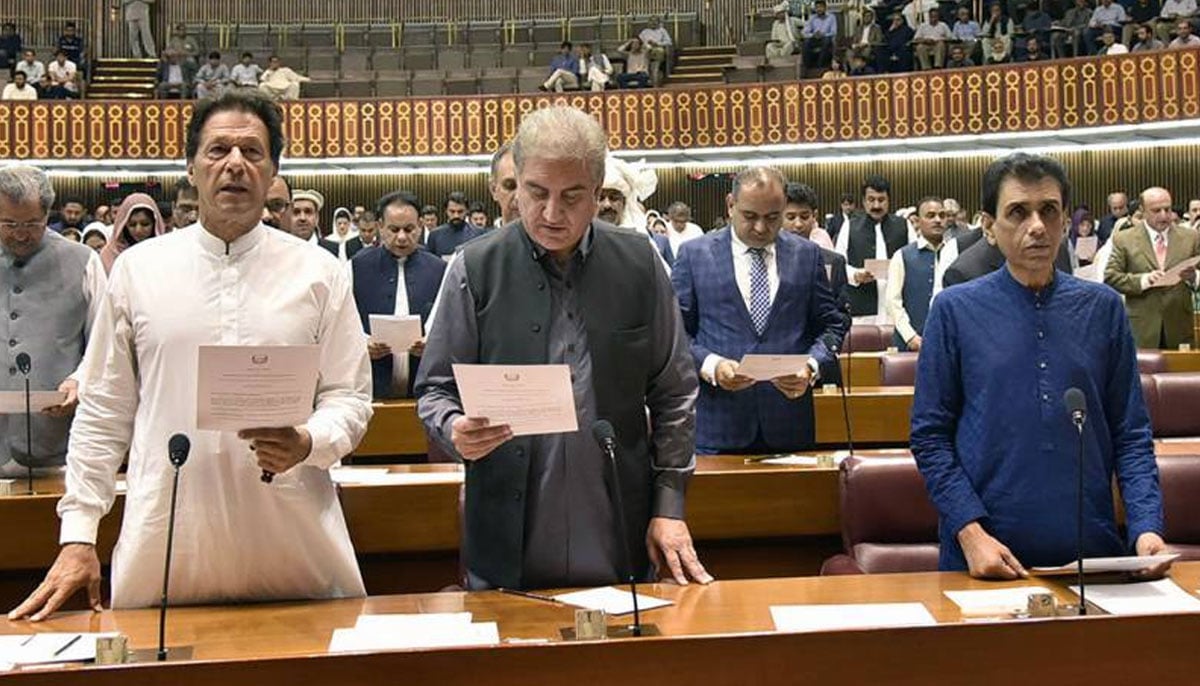
However, the MQM survived and the two factions of PIB and Bahadurabad merged and almost overcame the post-August 22nd onslaught during the 2018 elections. They almost won 10 to 12 NA seats but later accused the "third force" of handing over their winning seats to PTI. However, their decision to be part of Shahbaz Sharif's government badly affected the party's popularity due to massive price hikes.
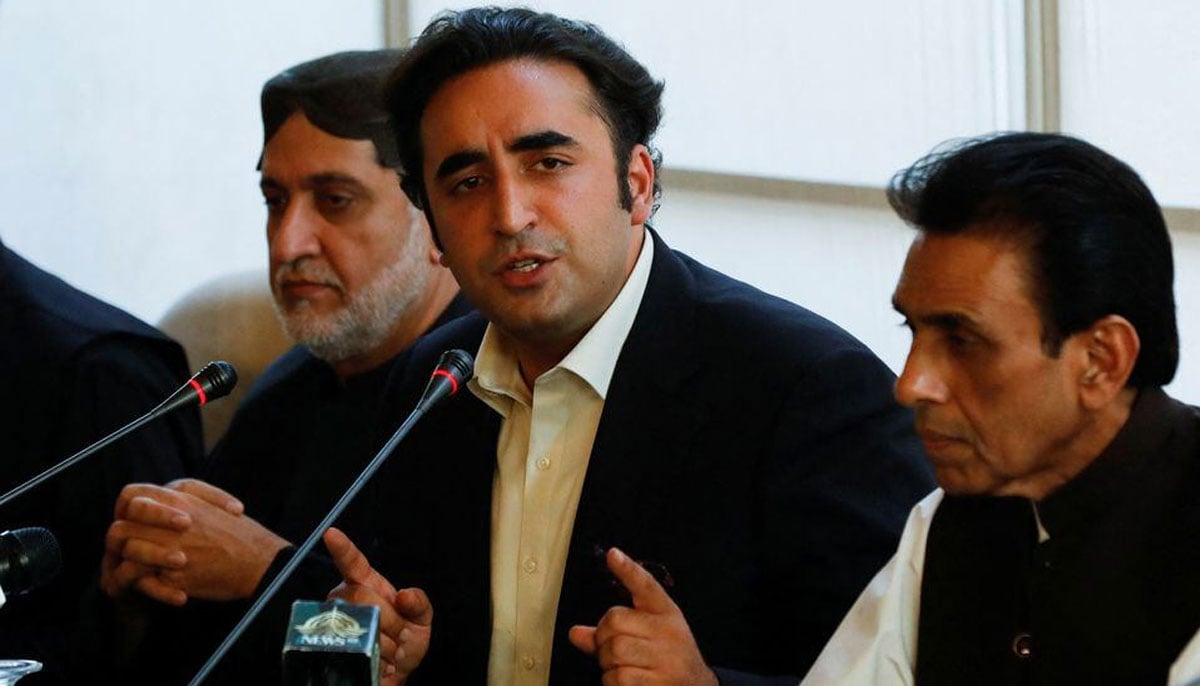
Now the biggest test for Khalid Maqbool and MQM-Pakistan would be the February 8 polls. It's an all-or-nothing election for both the party and the leader. Some within the party believe that Khalid should not have contested the elections as MNA and gave more time to the organisation.
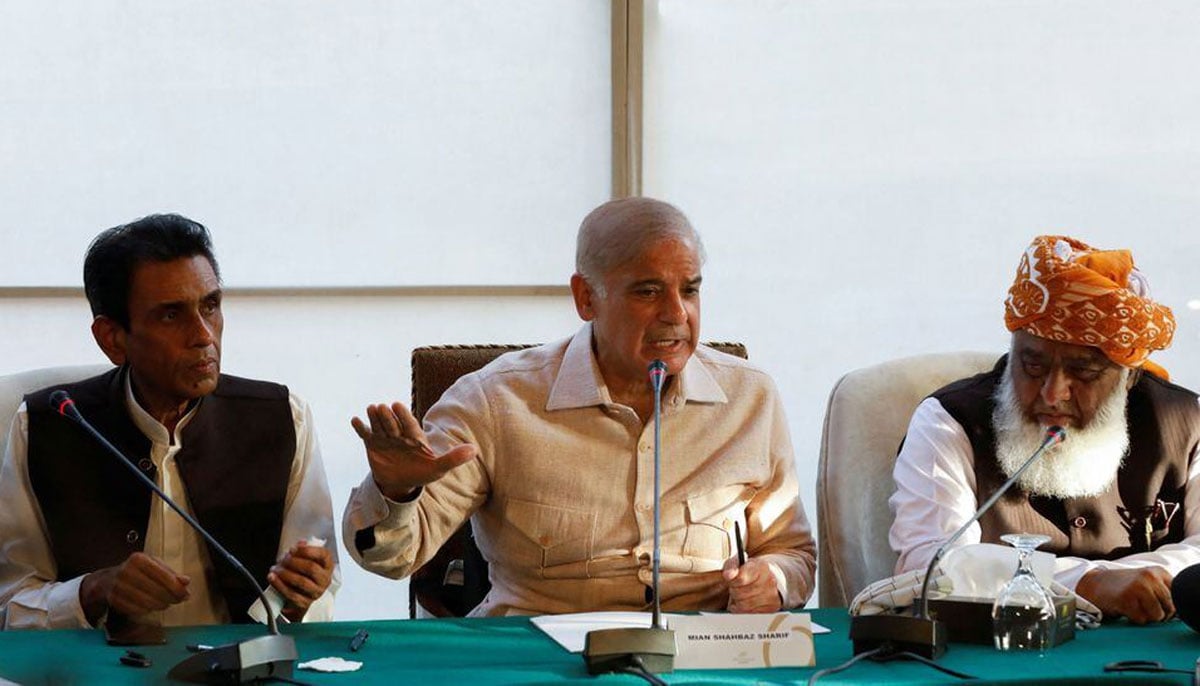
The MQM-P's political future depends on the February 8 vote results. If it managed to get something close to 2013 or did better than 2018, it would be like a dream come true for someone like Khalid Maqbool. However, defeat may lead to a change of guard in the party.
The writer is a columnist and analyst at Geo News, The News and Daily Jang. He posts @MazharAbbasGeo
— Header and thumbnail design by IMM Creative



